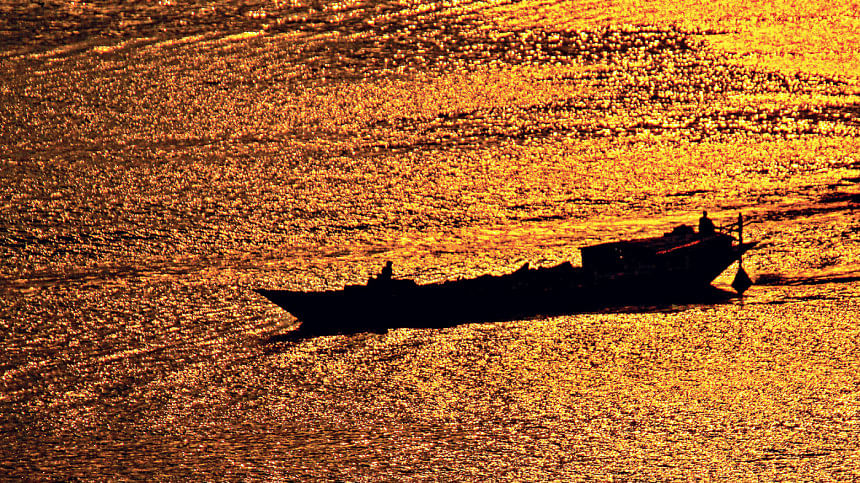'Our rivers, our responsibility'

Speakers at an event today stressed the need for coordination among the government agencies to protect rivers from all forms of onslaught.
They also called for ensuring investment in treating effluent that wreaks havoc on the country's vital water bodies.
Discussants came up with the suggestions at an event titled, "Rights of Rivers", organised by Bangladesh Environmental Lawyers Association, marking World Rivers Day on the fourth Sunday of September.
The event was held in the capital's Agargaon.
Speaking as the event's chief guest, Commodore Arif Ahmed Mustafa, chairman of the Bangladesh Inland Water Transport Authority, said that they used to swim in the Shitalakkhya river on a regular basis as children. But those days were long gone.
In order to better manage rivers, we need to enhance coordination among the government bodies.
He said only five to seven percent of river pollution occurs due to water transport, including small boats and vessels whereas the major pollutants come from land.
Referring to the projects that the government took up to protect rivers, he said an investment programme is in place to curb contamination of rivers.
There are plans to relocate dockyards from the banks of the Buriganga and Shitalakkhya to the bank of Dhaleshwari.
Pointing to the obstacles during eviction drives, the BIWTA chief said recently, they evicted illegal structures from the bank of Bakkhali river in Cox's Bazar, but within a few days, new structures were built.
"We also see injunctions from the apex court that also slows us down in freeing rivers from encroachers," he observed.
In terms of sand extraction, he said the key responsibility lies with the deputy commissioners.
Maintaining the navigability of a river is the responsibility of the government, not sand looters.
"Though we demarcate and fix how much sand could be extracted, it is really difficult to monitor if the instructions are not being followed."
"In order to better manage rivers, we need to enhance coordination among the government bodies including the Department of Environment, city corporations, and the BIWTA," he added.
Syeda Rizwana Hasan, chief executive of Bela, said, "Someshwari is no longer a river now. Every day, 4,500 trucks take away sand from this majestic river."
"The lease agreement that is issued by the deputy commissioner does not mention the extent of sand extraction allowing the offenders to loot the river dry. This must be stopped," she said.
If necessary, the government should extract sand, she proposed. "Maintaining the navigability of a river is the responsibility of the government, not sand looters," she said.
Mohammad Azaz, chairman of River and Delta Research Centre, gave a presentation on how sand extraction damages the rivers of Bangladesh.
Ariful Islam, director of BIWTA, among others, spoke at the event.

 For all latest news, follow The Daily Star's Google News channel.
For all latest news, follow The Daily Star's Google News channel. 



Comments